macOS
1
5 Sequoia

Syntheway AU, VST and VST3 Plugins Compatible
Syntheway has upgraded most of its catalog for macOS with native Apple
Silicon support in a major update version, with a reduced upgrade price. They
are:
Magnus Choir,
Akkordica,
H-Tonk Tack Piano,
ShamiKoto,
Organux,
Sitargen Sitar and Tanpura
Drone,
DAL Flute and Woodwinds,
Drumwavy Orchestral and Ethnic Percussion,
Banjodoline,
RetroMagix Harpsichord,
Aeternus Brass,
Saxophus,
ElectriKeys Electric Piano,
GuitarTempus,
Bassesland,
Synthphonica Strings,
Pianotrone Grand Pianos,
Chordophonet
Virtual Harp and Hammered Dulcimer,
Synthelium Synthesizer
and
Master Hammond B3 Organ
VST, VST3 and Audio Units
plug-ins for M1
and M2 processors. The new Audio Units, VST and VST3 versions are Universal
2 Binary (ARM64), supporting both Apple Silicon and Intel processors, with
executable code for both architectures.
Currently, the
Audio
Effects
and the
Software Synthesizers plug-ins are currently are available for Mac Intel
processors or Apple silicon (M1, M2, M3, M4) in Rosetta 2 mode.
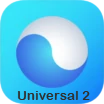
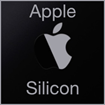
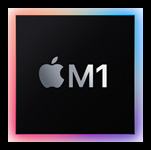
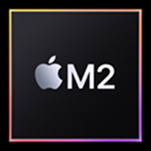

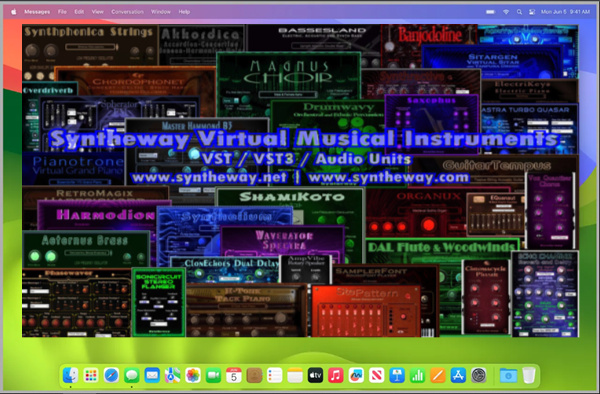
macOS Sequoia
Sharp as a Mac.
Lay out your workspace on the fly, browse the web with
focus, and even mirror your iPhone wirelessly. And Apple
Intelligence helps you simplify and accelerate tasks big and
small.
On Mac models with Apple silicon, macOS Sequoia introduces
Apple Intelligence, which draws on your personal context to
give you intelligence that’s most helpful and relevant for
you.
Features
macOS Sequoia includes a number of new features and
improvements, mainly focused on productivity:
→
iPhone Mirroring, a feature to mirror and interact with
content from an iPhone as a macOS window, has been introduced.
→
The Calculator app has been redesigned to be more similar to
that of iOS and iPadOS, including rounded buttons, departing from the design
that has been used since OS X Yosemite.
→
Notes has been updated with the Math Notes feature, which can
be used to calculate simple equations, evaluate expressions, and assign
variables within the app.
→
Passwords, a cross-platform password manager application, was
introduced.
→
In System Settings, individual menus have been rearranged and
slightly redesigned for quick access to frequently used menus.
→
Safari has been revamped, including revamped reader
mode (now called Reader), faster page load times, a new start page, and a brand
new unified menu; these had previously been exclusive to compact mode on
iOS/iPadOS.
→
macOS Sequoia will release with the second
iteration of Game Porting Toolkit, a Windows API compatibility layer derived
from Wine and Crossover, allowing developers to more easily port Windows
games to macOS.
→
Apple Intelligence will be available on all Apple
silicon Macs and will include artificial intelligence features such as a
revamped and redesigned Siri, Writing Tools with which selected text can be
proofread or have its tone changed, Smart Reply in Mail to quickly draft
email responses, and a system-wide integration with ChatGPT.
→
Window tiling is now automatically suggested by
macOS when dragging a window to the edges of the display, similar to
Microsoft Windows’ Window snapping feature.
→
The Tips app has a new UI and includes many new
tips for individual apps such as Freeform, Pages, Keynote, Notes, and Apple
TV, it can also now be added to the dock.
Supported hardware
macOS
Sequoia supports all Macs with Apple silicon and those with Intel's Xeon W
and 8th-generation Coffee Lake chips or later. A Mac with a M1 chip or later
is required to use Apple Intelligence. macOS Sequoia supports every Mac that
supports macOS Sonoma with the exception of the 2018–2019 MacBook Air models
with Amber Lake chips. Similar to Sonoma, the 2019 iMac is the only
supported Intel Mac that lacks a T2 security chip. macOS Sequoia is the
first version of macOS to drop support for a Mac with a T2 security chip.
The
following devices are compatible with macOS Sequoia:
iMac
(2019 and later)
iMac Pro (2017)
MacBook Air (early 2020 and later)
MacBook Pro (2018 and later)
Mac Mini (2018 and later)
Mac Pro (2019 and later)
Mac Studio (all models)
Audio Units™ is a trademark of Apple
Inc.
VST
is a trademark of Steinberg Soft- und Hardware GmbH
Mac™ is a trademark of Apple Inc.,
registered in the U.S. and other countries.
macOS is a trademark of Apple Inc.,
registered in the United States and other countries

